The documentary ‘The Foolish Old Man’, which tells the story of four Chinese activists and their struggle against (or cooperation with) the Government, premieres next week in the Spanish national TV (TVE)
Filmmaker Antón Calderón and journalist Diego Torres have immersed themselves in one of the most fascinating themes of contemporary China: the tension between civil society and political power. Traveling across the country and following four Chinese activists (including Hu Jia), the two documentary directors have witnessed first-hand the struggle against rural poverty, the fight in favor of environmental protection, the labor movement and the democratic political activism. The result is a documentary of emotive human stories that offers one of the most profound and complex analyses on civil society, the opposing strategies used by activists and the Chinese repression system. [Check their website]
At ZaiChina we have had the opportunity to speak with the two of them a few days before their premiere on Tuesday, December 6th in La 2’s Documentos TV program.
– First of all, can you tell us how the documentary came about? What is the story you want to tell?
Anton Calderón: Our documentary is basically the story of four activists. Each of them comes from a different field (environment, trade union struggle, pro-democracy activism, etc.) and has a different degree of commitment and a different strategy of action. Some believe that it is better to confront the Government. Others think that such conflicts do not bear fruit. And many inhabit a kind of no man’s land, between one side and the other, trying not to look for problems with the authorities, but having to face them anyway. And then, in addition to telling these small stories, we also talk about the bigger story of how social activism and the struggle for freedoms work in China.
Diego Torres: I had worked for several years as a journalist in China and was very surprised by the contrast between the general image of China in Europe and the reality on the ground. It is usually thought that China is a relentless dictatorship which imprisons automatically anyone who raises his voice or organizes. This is true, it’s a certain part of reality, but it is not the whole reality. Thanks to my work, I started meeting people who were not in this situation: scholars like Yu Jianrong, labor rights advocates, environmental activists … very valuable people who were not heard of in Europe or the US, because media generally report the stories of activists who are about to be imprisoned or are already being repressed. I was intrigued by the history of these people and their work; they were not world-renowned and some hadn’t been repressed by the system, but in my view it was these activists who were gradually changing Chinese society … and at the same time facing many obstacles.
– One of these people is Deng Fei (邓飞), the character with whom the movie begins, and his program to provide food for children in China’s poorest rural areas.
Diego Torres: Yes, the story of Deng Fei is very interesting. He was a very prestigious investigative journalist, he had worked for many years for a Hong Kong magazine (Phoenix Weekly, 凤凰周刊), where he had more freedom than in mainland China. His research included the cancer villages in China. He was the first to locate and map the numerous villages where pollution had generated an explosion of the cancer rates– a reality covered up by the local authorities. He was a very combative journalist with lots of prestige.
At one moment, however, Deng Fei makes contact with a reality that changes his life. He begins to investigate poverty in the countryside and the situation of many children whose parents have gone to work in the city [left-behind children]. He then becomes very involved with these children and realizes the enormous inequalities in China, where there are still many areas that are extremely poor. The kids there were not hungry, but they were not feeding as well as they should be. Then Deng Fei thinks: “Look, this combative journalism, trying to shed light on dark aspects of the country, may not be as fruitful as trying to change things through social organization, even though this social organization is less combative.”
– That is to say, he changed journalism for social activism.
Diego Torres: Yes and he also abandoned confrontation with the government and chose a more conciliatory way: founding an NGO, raising funds through internet donations and trying to solve poverty without criticizing the government too much … Today Deng Fei is one of China’s most successful social entrepreneurs. Not only has he succeeded in alleviating the poverty situation in these rural areas, he has also managed to raise awareness, mobilize people and organize public opinion in favor of these causes; and he has even managed to mobilize the government itself in favor of these projects. Deng Fei is the perfect example of how far activism can reach within the boundaries marked by the Communist Party of China (CCP).
Anton Calderón: I think it’s also worth saying that Deng Fei is a very clever guy who knows that in the fields in which he works he has certain freedom to act. Some topics are considered off boundaries or touching the red lines established by the government, which cannot be touched. However, no one is going to prevent him from feeding poor rural children; people can get involved and create an almost mass movement in this direction. But this type of social work can’t be done in other fields.
– Those red lines begin to appear in the film with the second activist, Da Shi (here in Baidu Baike), a young man who has founded an NGO to fight pollution. This is one of the key issues involving social movements in China. What is the attitude of the government to these independent organizations seeking greater protection and respect for the environment?
Antón Calderón: Da Shi (大石) had problems locally. This is something that can be very well observed in the documentary: the guidelines marked by the central government can change in the different layers of regions and cities. Local authorities have enough autonomy, or at least they exercise it. The rules change a lot from one place to another. And many times activists don’t really know what to expect.
Da Shi’s problems are related to the fact that sometimes local authorities are connected to the local industry bosses that he tries to denounce. This is caused by the atomization of power in China and by corruption, and that creates a dangerous environment for activists like Da Shi to move around. His case is particular, because he is the youngest [born in 1992] of all four and works in a field that has become popular among young people and has a lot of potential to be a mass movement (I think it is already becoming one). Da Shi is also the most naïf of all our characters. He’s the one that has had fewer encounters with the authorities and is the least conscious of the consequences that a bad step can have in his life.
– You have commented on an element that is fundamental: the youth, the new generations.
Antón Calderón: Yes, the story of Da Shi is an example of that generational transformation. The guy begins to work in a factory that is polluting a nearby river. Da Shi doesn’t like the situation; he quits his job and reports the company. He then creates an NGO in his city, Shaoxing, a place where there were no environmental organizations. Step by step he moves forward and mobilizes people in a place where there was nothing. It is he who is leading the way. He is part of the new generation of young Chinese people who have achieved a growing environmental awareness in the country.
Diego Torres: Yes, this can also be clearly observed in the story of Deng Fei. He has created a dozen organizations: the most famous is Free Lunch for Children (Mianfei Wucan), but he has otherprojects against the kidnapping of children, in favor of fair trade between the countryside and the city, to provide health insurance for children in need… Most of the funding for all these projects come from micro-donations. Using new Internet tools, such as WeChat or SinaWeibo (which are highly developed in China), he was able first to raise public awareness and second to raise funds for his ventures.
Thus, most of these micro-donations come from small contributions from young people. And this also reflects a change in the new Chinese generations who are no longer chained to thinking only about their sustenance, as their parents once were. Material deprivation was so severe that many generations in China couldn’t think of much more than their next rice bowl. But now young people, especially in the cities, have started to become more aware of the problems facing their country and to care and contribute more to solve some of them.
– In your third story you enter the labor movement. What tools do Chinese workers have to organize themselves and defend their labor rights?
Diego Torres: We tell the story of Zhang Zhiru, (张治儒) which is interesting too. In fact, all our characters have an exceptional quality to them. These are people who have put a lot of courage and intelligence into their struggles. Zhang Zhiru, for example, is an uneducated man from the rural world (from Henan province) who moved to one of the industrial towns of Guangdong as a migrant worker (nongmingong). He told us a saying of the time: “North, south, east, west or center, to make money the best place is Guangdong” (东西南北中发财在广东). At that time it was believed that if you went south to work in the industrial zones of the country, you would become rich.
– Are we talking about the ’90s?
Diego Torres: Yes. He starts working in Guangdong province in the 90s. And what he finds is a situation of brutal exploitation: extremely low salaries, workers who did not have any kind of leverage against business power… Zhang Zhiru worked in a Taiwanese shoe factory and tells terrifying anecdotes. For example, the supervisors walked around with a cane and every time they saw a mistake in the production chain they would beat the workers. If anyone protested or organized, they simply dismissed him and on top of that they gave him a beating as to warn the others. These were very dramatic situations.
For Zhang Zhiru, the turning point came when he had an accident at work while delivering products with a motorcycle. The Chinese law (and this is one of the problems, because laws are often correct, but the problem is law enforcement) establishes that if you have an accident at work, the company must cover medical expenses. But Zhang Zhiru found himself asking his boss to pay… and the boss said no. He then embarked on ajudicial process, but lost it because he had neither the money to pay for good lawyers nor knowledge of the law… he was in a situation of complete vulnerability.
And that’s when he changes his mind and thinks: “Look, there are many people in the same situation as me. I’m going to try to work for these people. I’m going to study the law and I will try to organize workers so that we can all have a better life.” And that’s what he has done since then. He currently has an NGO in Shenzhen, Spring Labor Dispute Organization, where many people come for help: factory workers who have been fired for organizing labor unions or for other reasons, people who have had an accident and are not being paid…there are people with all kinds of problems. And then he is also engaged in organizing independent unions within companies.
– I imagine it’s very uncomfortable for the government then.
Diego Torres: Of course. In China, at present, its a little bit like Franco’s Spain.There are official workers’ organizations that are completely controlled by the government.Whenever they need to chose sides, they are in favor of the company and the local authorities, never in favor of the workers. Zhang Zhiru tries to overcome this structure, so that people organize themselves independently and fight for their rights. That’s sometimes a clandestine task, done through social networks, slowly contacting people… maybe through an agent inside the factory spreading the message and bringing the workers together.
Zhang Zhiru also teaches workshops in which he explains: what danger does a strike pose for a worker? And he says: “Be careful not to break any fences, do not to hit anyone…” His point is that you can’t give the government the smallest excuse to come and repress. One of the most successful strikes in China in recent years took place there in Guangdong, in a Taiwanese factory, and Zhang Zhiru was precisely behind the movement. These strikes, if they are sufficiently well organized, if the workers can resist the pressure (first of the company and then of the government),can sometimes bear fruit and help workers achieve their goals.
– In this case, then, one of the tools in the hands of activists like Zhang Zhiru is the law. Is he a labor lawyer?
Diego Torres: He has legal knowledge, but he is not a lawyer. As for the law: it is always better to be within the boundaries of the law. But the law is not enough in China. The law can be another tool with which workers can assert their rights. But without organization and unity and courage and sacrifice nothing is achieved in China. The law is just a piece of paper.
– The last character of your documentary is perhaps the best known by the Western public, Hu Jia, who received in 2008 the Sajorov Prize of the European Union. It is perhaps the prototypical activist: a political dissident who defends democracy and end the Communist Party. It is also here that we see more clearly the harshness of repression by the government.
Antón Calderón: Yes, Hu Jia is by far the most hardcore character in the film. Making the documentary, there was one thing that struck me as very curious: all the activists, except for Hu Jia, were willing to grant some merits to the Communist Party. It may be because they think the Chinese context is very complicated, because of where the country comes from, because they look at Western democracies and don’t see a perfect model either … I don’t know exactly why, but everyone recognizes that good things have been done. But Hu Jia doesn’t. Hu Jia wants to destroy the Communist Party because he thinks they are all murderers and criminals. That is his stance.
Because of his political views, Hu Jia has placed himself totally out of bounds. He is a guy who lives in a kind of purgatory: he can’t make his voice heard in China, he can hardly leave his house… he is completely neutralized. And he has sacrificed his whole life for this. He lost his wife and daughter, who went to Hong Kong; he just sees his parents from time to time. He lives like a prisoner in his own house. And it shows how much you can sacrifice in your life, the contact with your people, and the possibility of having a decent life in China. He spent three years in jail … and must have spent around three times longer living neutralized.
This type of punishment reflects very well how the Chinese repressive apparatus works. It is not always as harsh as people would expect: “a dictatorship that catches you, locks you up and kills you”. No. It is almost never like that. It has more sophisticated ways of putting you in a place where you do not disturb. A situation that is tough enough to serve as a deterrent, to let other people know that if they follow the wrong path they can end up like that.
– Hu Jia’s personal story is very shocking.
Antón Calderón: Yes. Hu Jia begins with different types of social activism: environmental issues and the problem of AIDS in the country. But he says he immediately realizes that the real problem is greater and he advocates for direct opposition to the Communist Party. He considers himself a weapon, a tool in the long path to overthrow the Communist Party, whose members are criminals and murderers. But right now only foreign media reflect on his opinions, and sometimes they have to really toil to get the opportunity to see him.Some prestigious international media haven’t succeeded in accessing him. In 2008 he was awarded the Sakharov Prize for human rights, which gave him a slightly higher profile outside of China … but right now in China most people don’t know who he is.
– The title of the documentary is “The Foolish Old Man”, referring to the famous Chinese proverb Yugong Yishan (愚公移山). In that sense, perhaps the case of Hu Jia is the most extreme, but all the characters have some craziness in them, right?
Diego Torres: Maybe yes. As much as China is changing, the reality is that it is a fairly homogenous society in which propaganda is very powerful and very influential. People who get a little out of line are portrayed as unpatriotic. Most people are also very focused on their own economic future and that of their families. In general, most citizens are conservative and averse to risk.
It is therefore shocking to meet people like Hu Jia, who has sacrificed everything (his family, his freedom …) for a cause that in the short term, even if he thinks otherwise, is not going anywhere (China at the moment is not changing to become a more democratic country). It takes a strong vocation to be a martyr… because you live in a society that doesn’t react to your messages, a family that in many cases asks you to stop your activism, an environment of friends and relatives that tells you to abandon too… You need an enormous will to persevere, and Hu Jia is an example of the people who have it.
Antón Calderón: I think it’s also important to clearly stand up for social activists.
Diego Torres: Of course, of course.
Antón Calderón: Are they crazy? Yes, they are crazy. But thank goodness there are crazy people like theseFx. We can also see it right now in the West: what happens when you let things take their course, when people start dissociating themselves from democracy and from decision making, when people don’t come out to vote, or don´t want to get involved in the way their local economy works… It is necessary for ordinary people, for citizens, to check and balance the powerful.
The activists of our documentary are part of the generation that has pushed this idea forward in China. It is true that Chinese dissent has a long history, as we saw in Tiananmen in 1989, but this was repressed harshly. Little by little the tide begins to turn again. These social activists are part of a new wave and you have to recognize it. Social activists around the world have often been at the forefront of very positive changes, and although we may see them as a little crazy, I think we also have to be grateful that there are many people who are brave enough to make such sacrifices for the common good.
– You said before, Diego, that in recent years China is not changing for the better. You shot the documentary two years after Xi Jinping took power… Did you experience the freedoms backlash that Xi Jinping is supposed to be responsible for? What did the four documentary activists tell you?
Diego Torres: It is true that in the time of Xi Jinping there has been a very strong regression in civil liberties. However,it must be said the work of activists as those depicted in our film has borne fruit. Today China is a better country and more respectful of freedoms than it was two decades ago. A very clear example is the work of Chen Guangcheng, the blind lawyer. The local authorities in the area where he lived applied the one-child policy using extremely brutal means: they stormed the villages as if they were assault troops, they took the women who were pregnant, they forced them to abort, they sterilized by force those who already had a son, demolished the houses of people who had more than two children, beat the offenders … and that was not because those people were opposing the Communist Party; it was just because they had more children than they were allowed to. Chen Guangcheng got involved in that, suffered, paid jail for it … after prison authorities had him locked up in his house and in the end he fled through the United States embassy. But the work that that he did was useful because, although there remain some abuses related to the one-child policy, those crimes that he denounced no longer happen.
There are many examples that illustrate that positive change has been achieved, thanks in part to the work of social activists, in areas like the environment or labor rights. When I say that China is not becoming more democratic I refer exclusively to the period of Xi Jinping, who, it is true, has carried out a brutal wave of repression against human rights advocates, labor activists, and enforced a much tighter control of the internet and of what is said in universities… It’s a much more toxic environment under the rule of Xi Jinping. But I am optimistic in the long run. Thanks to these people,their bravery and their sacrifices, I’m confident that the future of China in the long run will be more democratic. We are now under Xi Jinping´s rule in a phase of regression, in which China is taking a step back, but the country will probably make two steps forward afterwards.
Antón Calderón: I think the wave of repression began more or less at the time we were filming the documentary. We had a character we were not able to film because she was jailed while we were there: Ye Haiyan, an activist for the rights of women in general and prostitutes in particular.
Diego Torres: Yes, they detained her for 10 or 15 days just when we were supposed to meet her.
Antón Calderón: And at that time we began to ask… and people told us how things were getting more complicated. It has only become more difficult since then. It started at that time when we were there.
– Something that can be seen very well in the documentary is the different degrees of repression that the government exercises. Some experts, like Perry Link, compare it to an Anaconda: a huge snake that is always there, but you never know when it will attack. Others, like Mao Yushi, compare it to a ping pong game where activists are always trying to hit the lines that delimit the playing field. All this seems to point to a system of repression much more elaborate than is usually thought…
Diego Torres: Yes. I believe that the Chinese repressive system, its control system, is unique in the world. I have never known anything like it. You have countries like Saudi Arabia, where a blogger publishes a bad tweet, the rulers imprison him for ten years and every week they take him out of jail to whip him in the public square. Or you have places in Latin America where labor and environmental activists or journalists are murdered by hitmen hired by companies or the narco (sometimes with the connivance or thanks to the negligence of the authorities).
But China is not like that. China has a very special system that is, first of all, incremental. That is, it is very progressive. It is not the same when you start and you are a young man, like Da Shi, for example. The first step they take against you may be just talking to your grandparents, and nothing more. There comes a person from the Communist Party in the neighborhood, not even a big boss, and he says to your grandparents: “Listen, look, the boy is doing these things, we do not like that, he’s going to get into trouble…” It can be as subtle as that. But it can also be the opposite. Some activists get imprisoned for life. China, for example, is the only country that has a Nobel Prize locked up in prison, Liu Xiaobo. The scholar Ilham Tohti was recently sentenced to life imprisonment simply for being a professor who defends the rights of the Uighur minority.
So they do have great extremes, it’s incremental. They put pressure on people step by step. Let’s take the case of Zhang Zhiru, for example. He is not an activist who fights against the Communist Party, but a labor activist who may create trouble for local businesses. And very often these companies are connected with the local CCP rulers. There is a dramatic problem of corruption. So, in the end, even if labor activism is semi-tolerated, the local party boss may not like seeing Zhang Zhiru organizing a strike, because the boss of the factory is his friend and also takes him to dinner and gives him some very juicy hongbao. That’s why people like Zhang Zhiruget into trouble.
– What trouble are we talking about?
Diego Torres: Well, he has been forced to leave his home many times. People sent by the government go talk to his landlord and say: “Look, you have a criminal living in your house; you need to get him out of the house”. Zhang Zhiru, with his wife and his young son, have been forced to change homes thirteen times in the last few years. You have to be constantly moving and looking for a new home. He is always under the threat that they will not let you live.
Sometimes, if you want to meet with the workers, the secret police comes and stops you. They probably won’t prosecute or imprison you, but they will detain you for two days so that you miss the meeting with the workers or whatever you were going to do. Another thing they can do is that if you have an NGO that is trying to raise funds online, they come and cancel your account so you do not have access to those financing tools.
If the level of repression increases, they attack your family. You have a child in the nursery school, and suddenly they say they can’t have your child any more or you are unable to find a school for your child. Or if your wife has a job, even in a private company, they may go talk to the head of the company and say: “Hey, look, this woman has to be fired.” And as everyone knows that the state in China has immense power, people are afraid and they generally comply with those decisions. So it’s a very incremental system.
Anton Calderon: The Chinese repression system is a bit like a tailored suit. That’s what is really impressive. The amount of money that is thrown at a repressive system that knows how to evaluate at every moment, what it can win, what it can lose, how far it can push, what can cause an international uproar, what person can make a much bigger buzz inside China… It seems like a lot of people are thinking about what is the best strategy to repress each individual and how to do it.
Diego Torres: It’s very sophisticated. Very sophisticated.
AntónCalderón: For example, in a recent BBC video, the journalist tried to interview an independent candidate for the local elections … and fifteen men (probably plain clothes policemen or thugs hired ad hoc) were mobilized to prevent the journalist from entering the house where the independent candidate lived… They turned their back on him and placed themselves to block the door of the candidate’s house. Fifteen guys just to prevent a door being opened! Then you can imagine everything else. How many people work for other doors not to be opened, or other windows, or that phone call not to be made… it’s amazing. If we had the details of how many people work in China repressing their fellow citizens, how much money is spent … I think these would be absolutely insane figures.
Diego Torres: And then it also has an unpredictable quality to it. That is to say: two similar behaviors, one in a certain town and another in a different place, one at a precise moment and another at a different time, can be punished in a very different way. It has that point of unpredictability that makes it all the more terrifying, because people never know what to expect. It is very scary.
– In this context, many readers will wonder about the problems you had during filming. How did you get access to these four activists? Did you have problems with the authorities?
Antón Calderón: It was complicated. And even more so for me, because Diego, being a journalist, having a press card and being registered as a correspondent in China, was in principle legally authorized to go and talk to these people (or at least try) and report on their situation. If caught, I was more likely to be deported.Before giving me the tourist visa, they made me sign a document promising that I wasn´t going to China to make any documentary.
We had of course some curious situations. With Hu Jia, for example, when we arranged to do the interview, he was under house arrest, but had a little time of the day he could leave his home. We planned to meet with him in a tearoom where you can rent a private room. We went in there, closed the door, asked to be brought tea and not to enter any more. We set up the whole equipment (the lights, the cameras …) and when it was all ready, I left. The risk that they would come in and catch me inside was big. Then everything was set up for Diego to do the interview and when I left, in two minutes, Hu Jia entered. They did the interview and I was to go back a little later if I saw nothing strange around. During the shooting there were situations that felt a little like a spy movie.
Diego Torres: We were going around with two DSLR cameras and tried to act as discreetly as possible. There is also one thing to keep in mind: We, as foreigners, are protected in China. We are not going to be imprisoned, nor are they going to beat us up… The most they can usually do is to deport us or, in my case, cancel the yearly journalist’s visa and expel me from the country. We knew that those who were taking the real risks were the activists, the characters in our documentary. They are the ones who can truly pay a high price for their courage, because repression can reach them or their families.
– One of the tensest scenes of the documentary is during one of the workers’ strikes in which Zhang Zhiru takes part.
Diego Torres: Yes. Whenever there is a mass movement in China, like a strike or a street protest, if you are there, the authorities, the police, come ask for your identification, they stop you momentarily to see what you are doing, where you come from … and then they make the most to try and prevent by all means that you keep doing your job. They make you lower the camera, hamper the filming… At least in my case I have not experienced any violent situation, but several times, such as the strike we filmed with Zhang Zhiru, in which they tried to hinder my work by all possible means.
Antón Calderón: I, for example, couldn’t go to that strike. Knowing that there would be authorities there, it was an unnecessary risk to take. Because the moment they caught us, they saw the cameras and whatwe had recorded…
Diego Torres: Our priority was to finish the documentary and protect the characters.
– Anton, you had a lot of experience as an audiovisual producer, but it was the first time you went to China; and you got into a considerable mess with this documentary. How did you live it on a personal level?
Anton Calderon: It was very shocking. But keep in mind that before doing this, Diego and I had talked a lot about what we were going to do, about the characters we were going to interview, about the issues we were going to deal with … And Diego had told me a lot of things along all the years he had been in China. But of course, seeing all this in first person is different.
Anyway, when you start working on these types of projects, it’s super immersive. You are in a bubble for two months and you do nothing but think about the documentary, about the challenges of production, about how to best portray your story, how to solve the problems that you find on your way… I got completely into it. I didn’t have any sort of tourist experience in China. I spent the whole time there working. Trying to get through each situation, not drawing too much attention, being aware of the risks of doing each little thing. And it was a very political experience. I got to know about the most of the important issues for these people, political and social problems … It was also a super enriching experience. You have a kind of access to the reality of people’s lives that you would have never had if you´d come as a tourist.
– Diego, you on your part had been working for the newspaper El Mundo and other media for many years. I imagine that this documentary was for you a sort of a personal farewell to China, your last contribution to explain to the audience what is happening in the country…
Diego Torres: Yes, I had been in China for about five years. And it’s true that the documentary was a sort of farewell. As a journalist, I had already dealt with several of these issues, but to me those issues and those people seemed so interesting that it was worth exploring them a little bit further and making them known to a wider audience. I also had in mind to somehow pay homage to these activists, who are doing such a valuable and lonely job.
I remember what Anton said: two months immersed in the problem of activism in China. Many nights, after having been shooting the whole day, we came back to our hotel and we needed to do bits and bobs, like dumping the cards on the hard drive, making a backup, charging the batteries… and that usually took us a couple of hours. During that time we discussed a lot between ourselves about the issues of the day, about the life of these characters. Who does a more useful job? Is it better to say, “Well, I’m not going to attack the government, I will transform society through my work, but little by little and without attacking the political elite”? Or is it more useful tosay, instead: “I won´t comply, I am a kamikaze and I am against the system”? Which strategy is the most productive? In the short or the long term? We had those discussions a thousand times. And by the end of the production we were still in doubt, as are many of our characters.
– A very remarkable thing is that in this documentary you have done a lot with very little, since in fact you count with few resources. You’ve practically done it yourself, have you not?
Anton Calderon: The good thing about this is that you try to transform a weakness into a strength. With flashy gear and a proper crew, as these productions are usually made, we wouldn’t have been able to work in China in this issue. We didn’t have permission to shoot the documentary. We would like our audience to be aware of this issue. This film couldn’t be done any other way. It could only be done the way we did it: quietly, inconspicuously, without saying anything to anyone and trying to get the most out of our skills. We made it with a skeleton crew, just Diego and I, we were the only ones who worked on the filming of the doc. We tried to think a little bit about aesthetic issues, to give it a bit of visual diversity, to see if we could show different landscapes of China… We were aware of the limitations, but we tried to overcome those limitations with creativity and the truth is that we are happy with the result.
– Where can we see the documentary?
Diego Torres: If there isn’t any change, the film premieres in the Spanish National TV on December 6th.
– The documentary gives the impression of having been made for a global audience, in English as well as in Spanish and in any other language. I imagine you are showing it in other countries…
Diego Torres: Yes, the goal is for the film to be seen in as many countries as possible. We are talking with different TVs, but for the moment the only done deal is with TVE.
AntónCalderón: We have a 90-minute cut that we have been presenting to festivals, although for the moment we have not had much luck. We’d like to show it in some festivals and also on global TV channels. Sooner or later, we will upload it on the Internet so that more people can watch it.

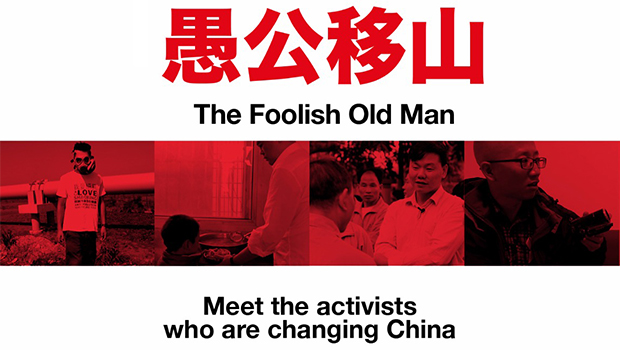
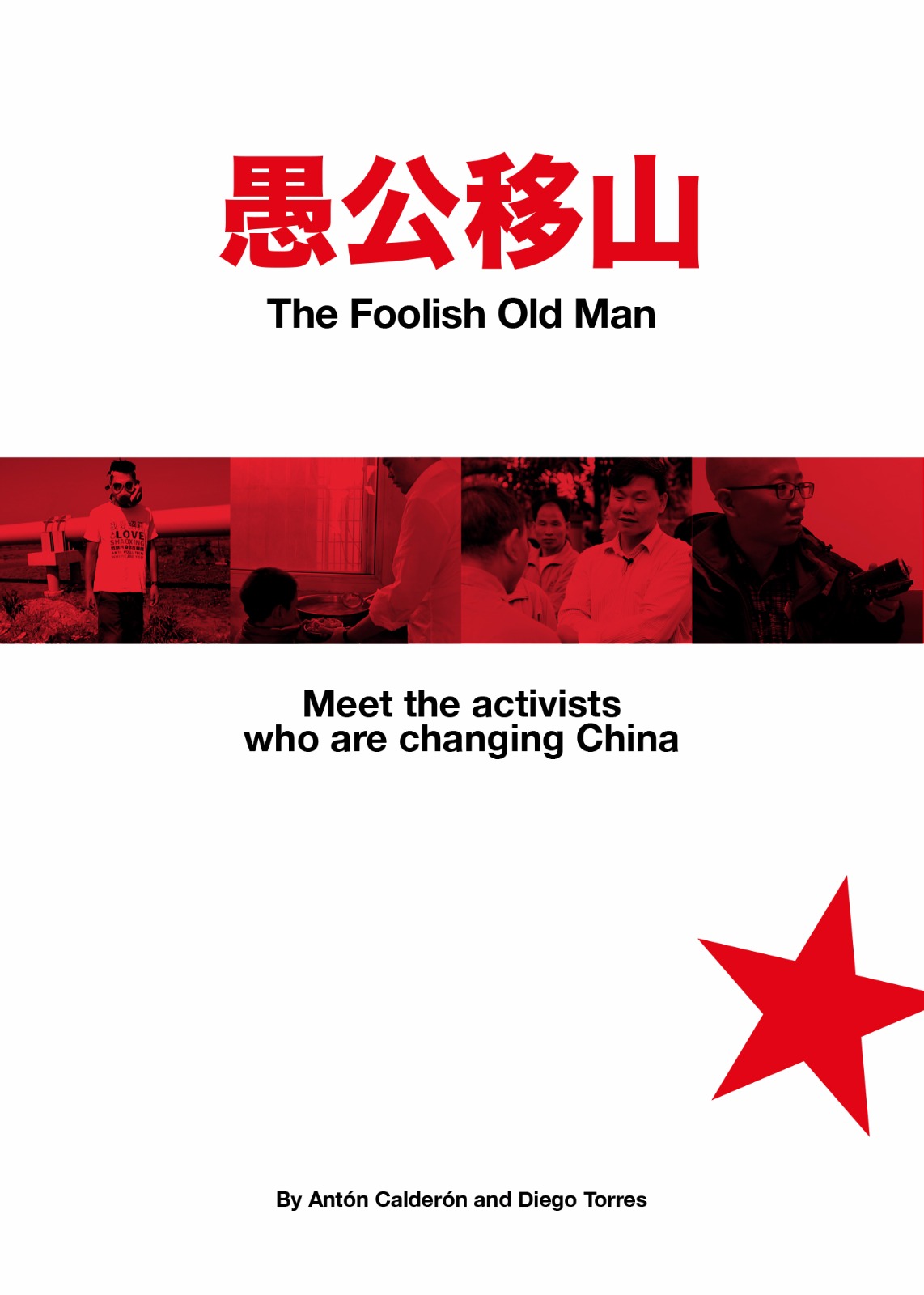
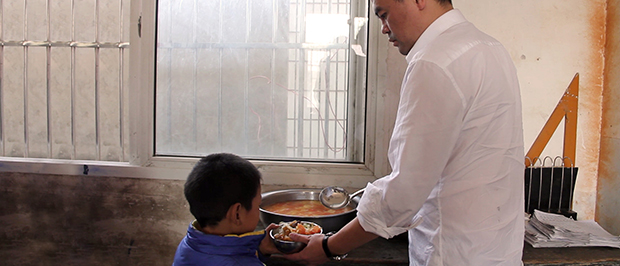
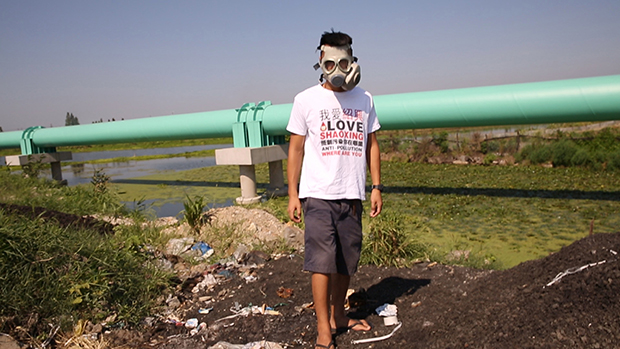
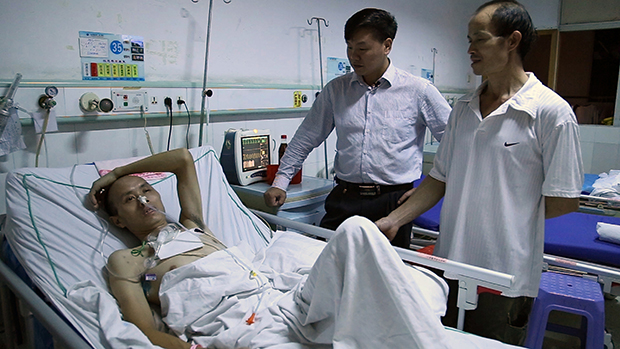
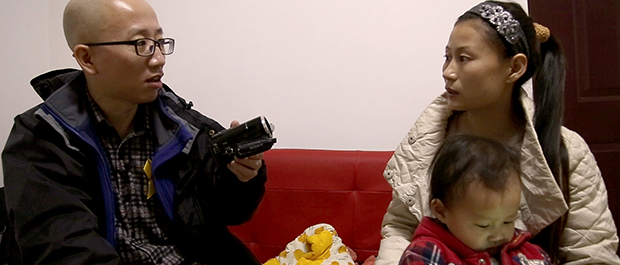
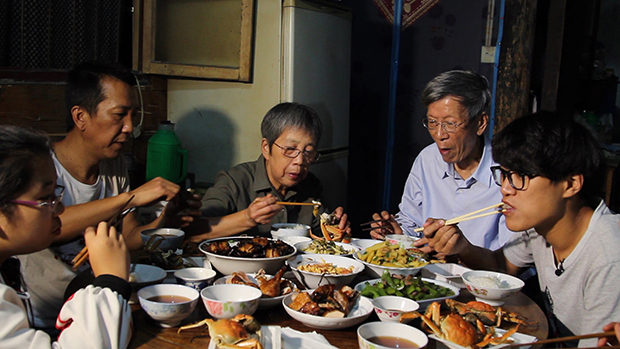
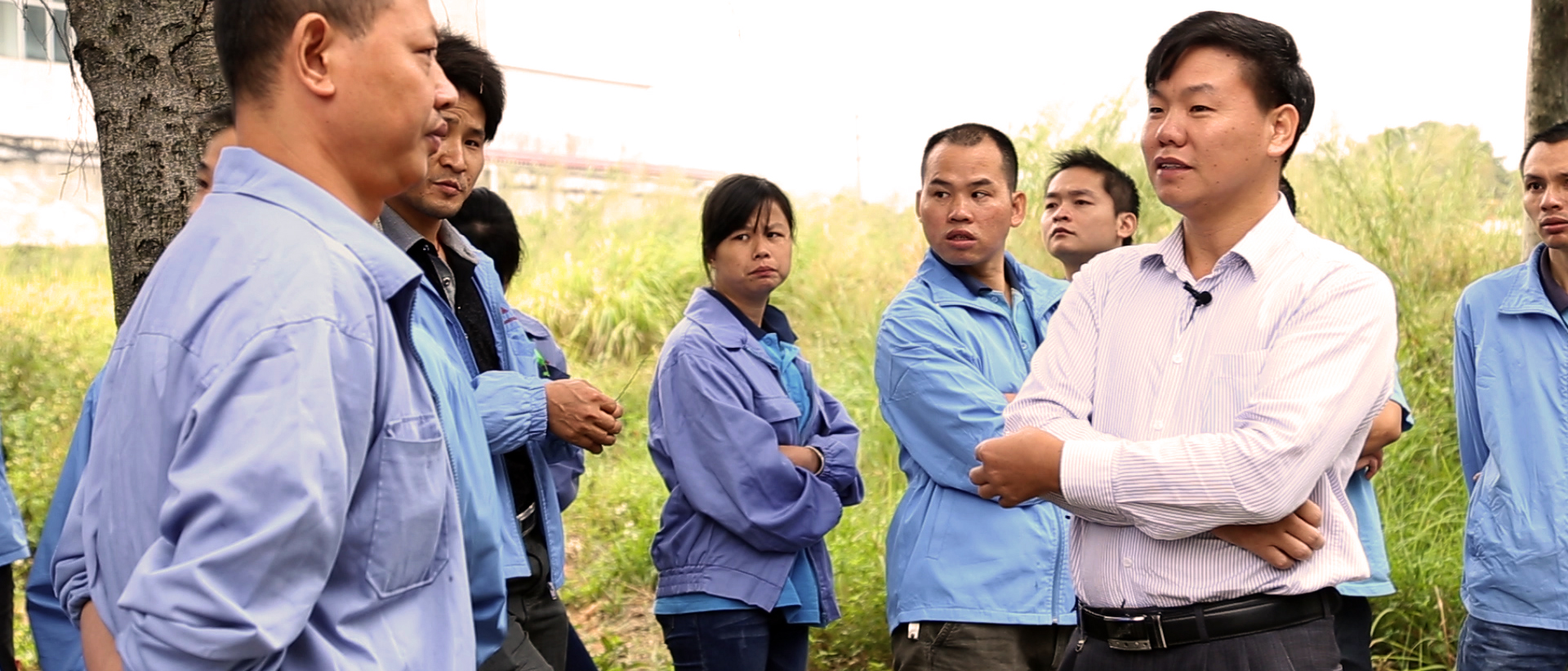

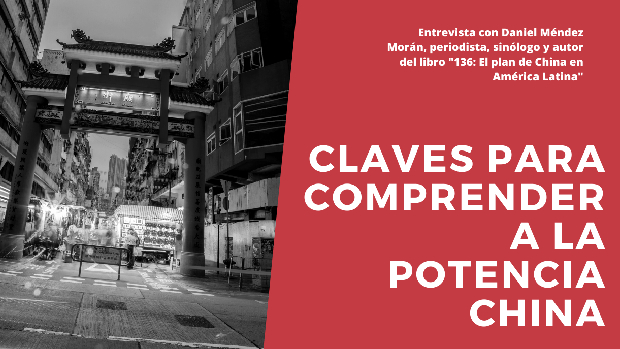
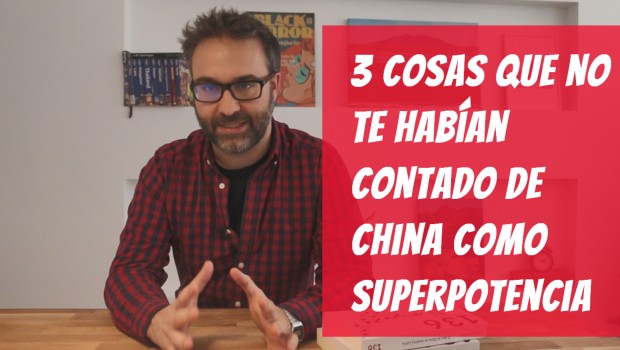
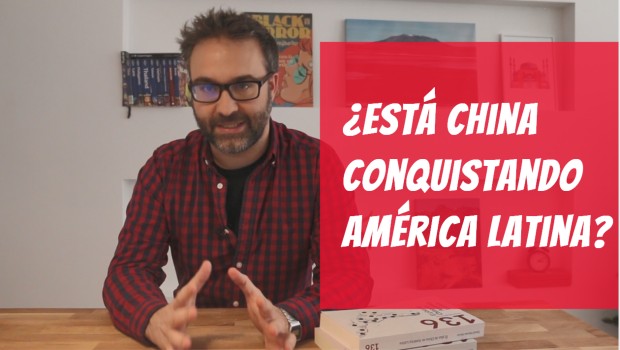

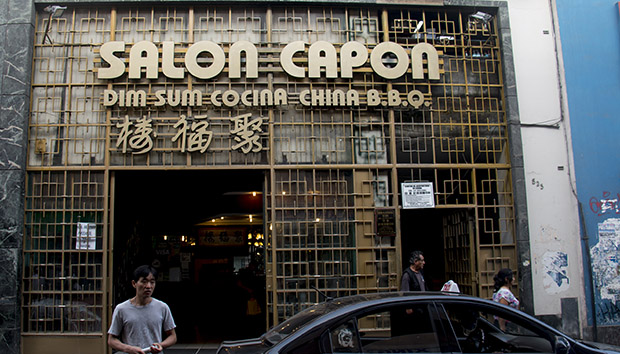

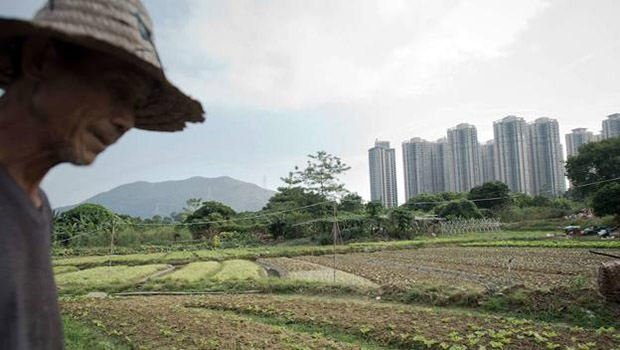
0 comentarios